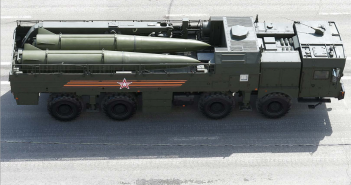
Stimson Center’s Bloomfield on Statecraft Under President Trump
In the first installment of a wide-ranging interview with Defense & Aerospace Report editor Vago Muradian, Amb. Lincoln Bloomfield, distinguished fellow and chairman emeritus of the Stimson Center, discusses a recent think piece he co-authored with Tom Harvey, founder and chairman of the Global Environment and Technology Foundation, for “The National Interest” entitled “Statecraft in the Trump Era.” The interview was conducted on Aug. 25, 2017, at Bloomfield’s home in northern Virginia.








![Defense & Aerospace Business Report [August 22, 2017]](https://defaeroreport.com/wp-content/uploads/2017/08/McCain_Site-351x185.jpg)
